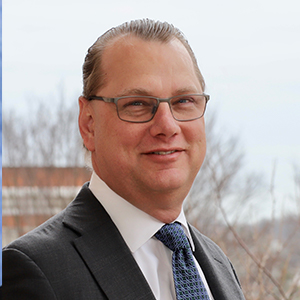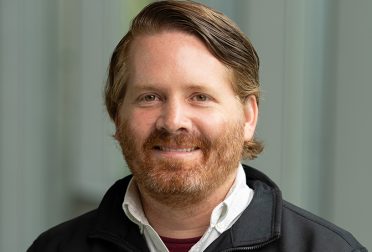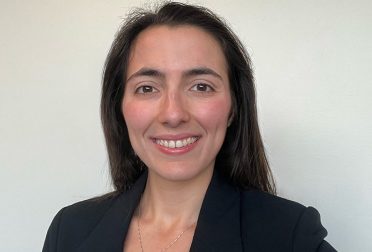Douglas Hague
SDM ‘99
M.S. Metals Science & Engineering
Ph.D. Materials Science
Dr. Hague enrolled in the SDM program as a sponsored employee at Pratt & Whitney as he transitioned from a role in manufacturing to a role in the office of the Chief Engineer. Since graduating, he has served in multiple leadership roles and most recently was named the inaugural Executive Director of the School of Data Science at UNC Charlotte.
How did the SDM program change your job trajectory?
The degree was what allowed me to take on a new role in technology strategy at Sprint shortly after graduation. I was able to apply the specific lessons from SDM in my job at Sprint. You get a great education in the classroom, but you also learn as much from the cohort you build while in SDM. And that network continues with you for the rest of your career. As an example, I changed industries a second time 6 years later when one of my cohort hired me into the finance industry.
As I had always wanted to give back to a university later in my career, after more than 20 years working in a corporation, I recently took the leap into academia. The leadership capabilities and the ability to work in an interdisciplinary way across many different fields and stakeholders is something I learned at MIT. Dealing with ambiguity, managing different desires/wants, and driving to a solution is one of the things you learn early in the SDM program. This set of skills contributed to me being named Executive Director of the School of Data Science.
What would you say is the value proposition of a degree in engineering and management?
As I look back, the big takeaway is that the degree teaches you to think differently. We recognized this early on while we were in the program. You think holistically and in a systemic way about all the things that can impact a problem. When we came in, most of us were engineers, and you thought about the problem within your discipline. I still find that I think of things in a holistic way, for all the stakeholders, more so than most people. That has served me well in my career.
What are key things you learned at SDM that you routinely use in your work today?
The program allowed me to take classes in many different subjects that I’d not been exposed to. As an engineer, I’d never taken any finance and accounting classes, so I learned how a business really works and how money is made. I also got my first experience with topics like marketing, risk management, and project management.
You learn many subjects, but the biggest thing was learning how to think in a broad manner. You don’t realize it as much when you’re in the program, but when you get out and start talking to people you realize you’re thinking differently than they are. And you have to explain why, and why it’s important to think that way.
Would you encourage your colleagues or your supervisees to get an SDM degree?
The program attracts a different type of student than you would normally expect. For my cohort, we had an average of ten years of experience. We were working full time, trying to raise young families all while getting a degree at MIT. It was crazy, but fun. A couple years ago, I ended up talking one of my employees into applying to the program. He’ll graduate in May (2020). He was an Air Force officer, an analytics staff member, and was mostly thinking about local MBA programs. I encouraged him to take the leap of faith to apply and go to SDM at MIT. And yes, he is still communicating with me.




